The daily motion of the earth as it spins on its axis results in the cycle of day and night – an activity that isn’t connected with the shifts in seasons, as those are caused by the earth’s 23.5° slant towards the sun (refer to point #8 for a more accurate understanding). Have you ever wondered about the consequences if the Earth ceased to rotate all of a sudden? Although it’s a highly unlikely occurrence, predicted to happen only billions of years into the future, it’s still intriguing to consider the catastrophic repercussions. Without the balance of forces created by the Earth’s regular spin, extreme storms would ravage every country worldwide, the oceanic landscapes would dramatically change, new landmasses would emerge while several existing territories full of cities and their inhabitants would be submerged. The world would rapidly descend into chaos, facing the imminent extinction of virtually all life forms. On a more optimistic note, by the time our planet’s rotation would hypothetically cease, the sun would have long since exhausted its life cycle. Learn more about this theoretical scenario in this list titled 25 Catastrophic Events That Could Happen If The Earth Stopped Rotating.

We would go for one heck of a rollercoaster ride
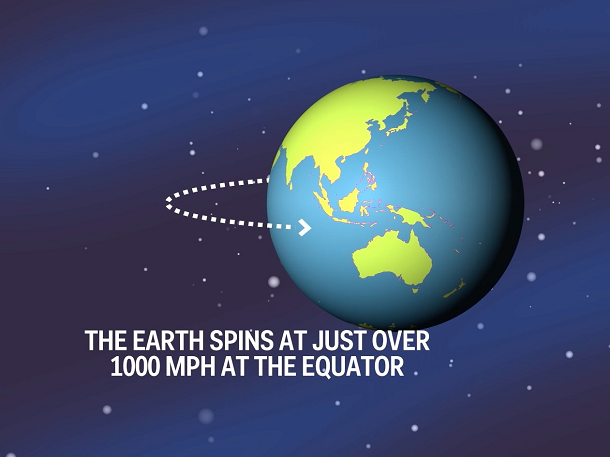 Source: Universe Today, Image: Tech Insider
Source: Universe Today, Image: Tech Insider Gravity keeps us firmly rooted to the planet’s surface, especially useful considering – if on the equator – Earth’s rotation shoots us through space at 1,040 miles per hour (1,674 kmh). Compare this to a transoceanic Boeing 777 which can only reach top speeds of 590 miles per hour. Thus, if the Earth stopped spinning, we would be hurtled sideways at 1,040 miles per hour.
But we wouldn't fly into space
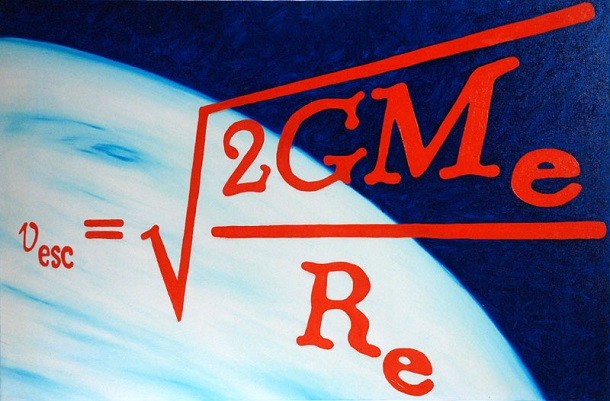 Source: Universe Today, Image: UT - Dallas
Source: Universe Today, Image: UT - Dallas Some science-fiction films would have us believe if the Earth stopped spinning we would be launched into space. Despite getting hurtled sideways, we would not fly off into space. Since Earth’s escape velocity is 25,020 miles per hour (40,000 kmh), we would not have enough speed – only moving at 1,040 mph – to leave the planet.
A global hurricane would destroy countless cities
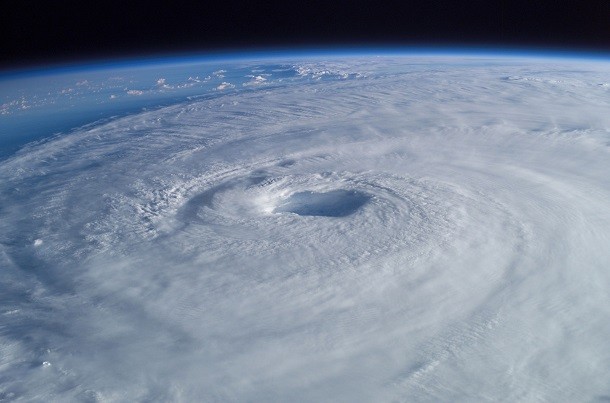 Source: Universe Today, Image: Wikipedia
Source: Universe Today, Image: Wikipedia But, since our atmosphere turns at the same speed, an abrupt stop would create a massively destructive hurricane over nearly our entire planet.
A global tsunami would roll in
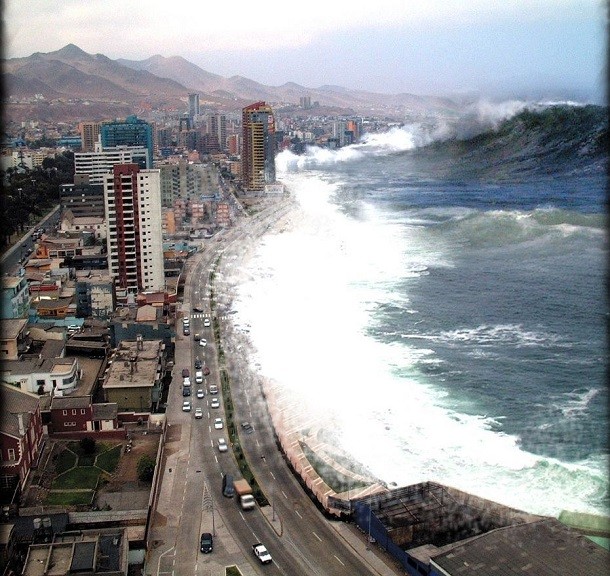 Source: Tech Insider, Image: Angela Riddock via Flickr
Source: Tech Insider, Image: Angela Riddock via Flickr Remember Newton’s First Law? An object in motion will remain in motion unless acted upon by an external force. Since our oceans are in constant movement as well, the momentum will hurl them around just like us, creating tsunamis that could reach over 17 miles (27.4 km) inland in less than a minute.
An earthquake would rock the world
The different forces acting on Earth are so perfectly balanced that we rarely experience or notice a change in them. When we do, natural disasters such as earthquakes happen. If our planet were to stop spinning, the delicate balance would be immediately disrupted and earthquakes would be triggered all over the planet.
Fires would ignite everywhere
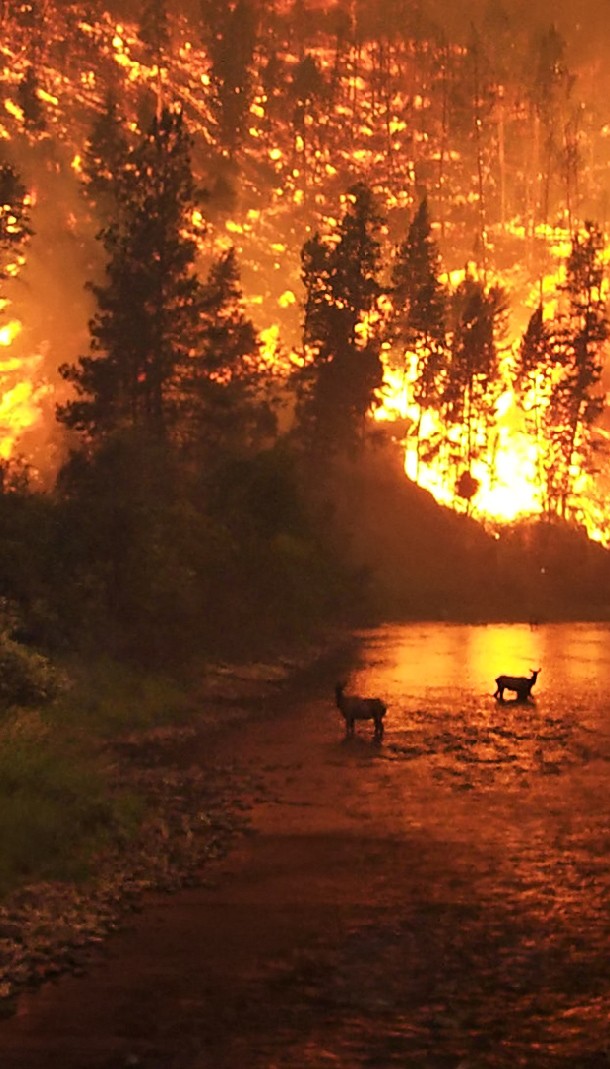 Source: Universe Today, Image: Wikipedia
Source: Universe Today, Image: Wikipedia The rapid change in wind speed and the development of hurricanes mentioned in #23 would create a force so strong fires would spontaneously ignite across the planet. (Think about how friction caused by rubbing two sticks together can cause a fire.)
GPS would be thrown off
 Source: Educational Documentary, Image: Wikimedia
Source: Educational Documentary, Image: Wikimedia Global positioning systems (GPS) use satellites loaded with intricate and elaborate calculations to determine the users’ location on Earth. If our globe stopped rotating, the specific calculations would be thrown off. Though it may not seem like a big deal for your inter-city trip to that fancy new restaurant, planes rely on GPS to get between airports. With GPS’ calculations thrown off, planes will shoot way off course, likely resulting in numerous crashes and fatalities.
The sky we see would be more static
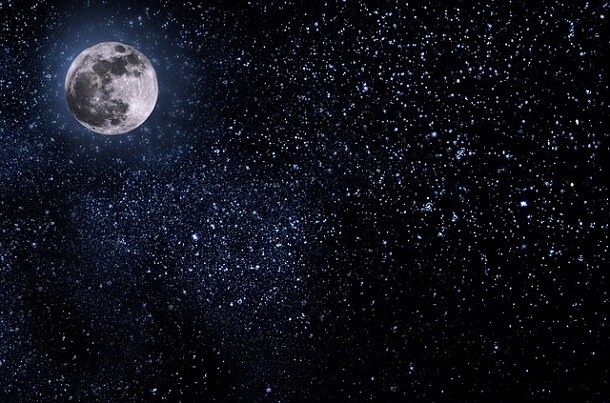 Source: Universe Today, Image: Pixabay
Source: Universe Today, Image: Pixabay If the Earth stopped spinning, most of what we see in the night sky would, too. The stars in the sky would appear to freeze in place, though we would still notice the other planets continuing their orbits.
The moon would eventually crash into Earth
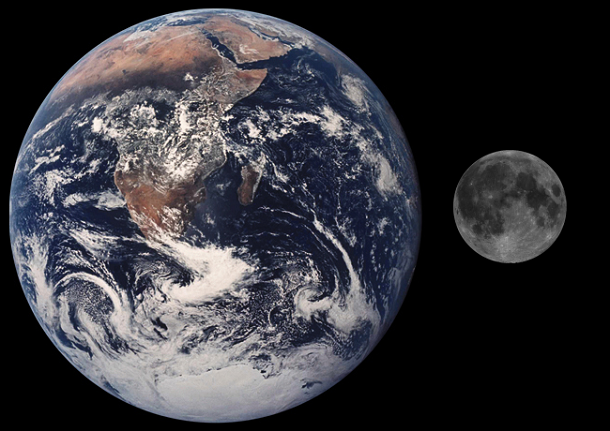 Source: io9, Image: Wikimedia
Source: io9, Image: Wikimedia The Moon is currently (slowly) drifting away from Earth. With the Earth stopped, the Moon would slowly drift closer to Earth until it impacts the planet many millions of years in the future.
One day would be a year long
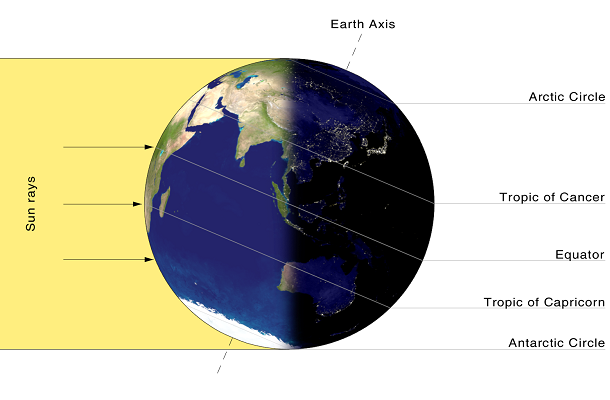 Source: Universe Today, Image: Wikipedia
Source: Universe Today, Image: Wikipedia Today, one day is equal to 23 hours and 56 minutes. If our planet was to stop spinning, the sun would stay over half of Earth for six months and the other half for six months, killing off most plant and animal life. That means a six-month-long day followed by a six-month-long night.
The poles would be mostly unscathed
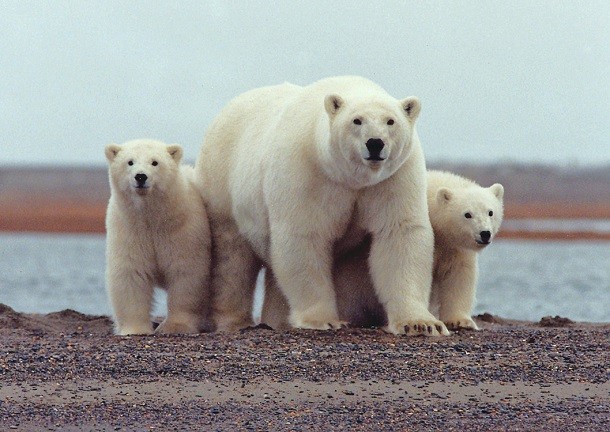 Source: Universe Today, Image: Wikipedia
Source: Universe Today, Image: Wikipedia Since Earth’s rotational velocity diminishes the further away one gets from the Equator, if the Earth stopped spinning, a polar bear or penguin standing on the North or South Pole would feel little disturbance. (Though #11 might prove being there to be a bad idea.)
Sunlight would be blocked from reaching Earth
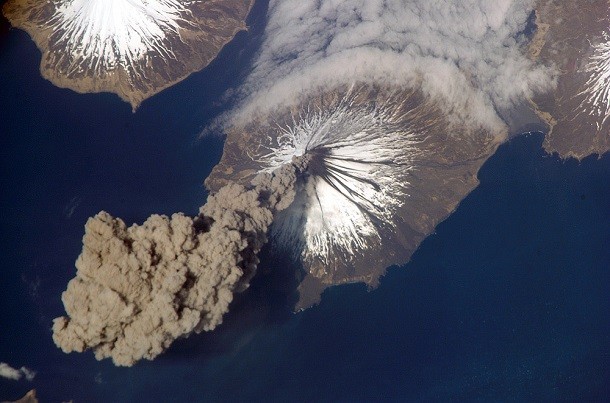 Source: io9, Image: Wikipedia
Source: io9, Image: Wikipedia Dust and debris shot into the atmosphere by a stopped-Earth would likely block out the sun, at least temporarily, as happens when volcanoes spew ash into the sky and as happened during the asteroid impact which killed off the remainder of the dinosaurs.
The sun's pattern would change
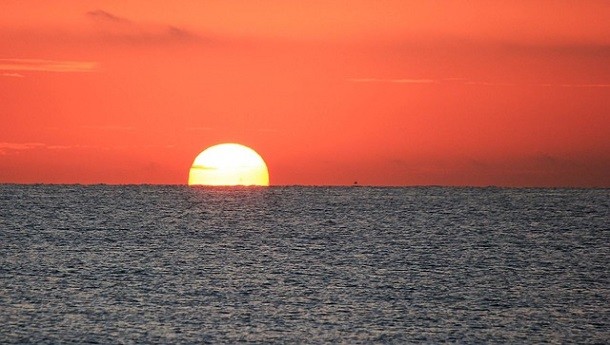 Source: Tech Insider, Image: Pixabay
Source: Tech Insider, Image: Pixabay Without the Earth’s normal rotation, the sun would rise in the west and set in the east.
Earth would become a sphere
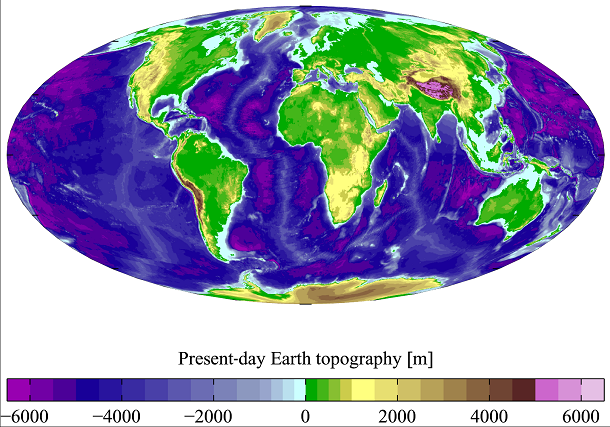 Source: Universe Today, Image: Wikipedia
Source: Universe Today, Image: Wikipedia As it spins, Earth bulges out at the equator due to rotational velocity. If the Earth were to stop spinning, the 5 miles (8 km) of bulging oceans would redistribute over the planet, flooding many low-lying regions.
Oceans would redistribute
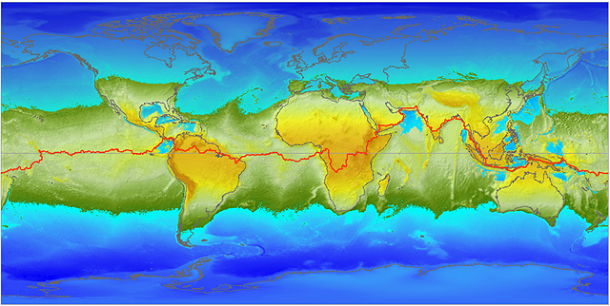 Source: Universe Today, Image: kiwigis.blogspot.com
Source: Universe Today, Image: kiwigis.blogspot.com On a similar coin, since gravity is strongest at the poles, the oceans would concentrate around the North and South Poles, leaving behind one super-continent wrapping around Earth’s equator.
Wind patterns would change
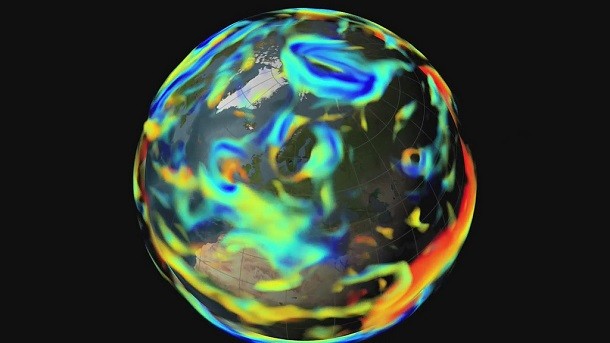 Source: NASA, Image: GSFC via Flickr
Source: NASA, Image: GSFC via Flickr Current wind systems move in parallel to the equator but would move from the equator to the poles if the Earth stopped spinning, massively altering weather patterns.
The oceans' surface would atomize
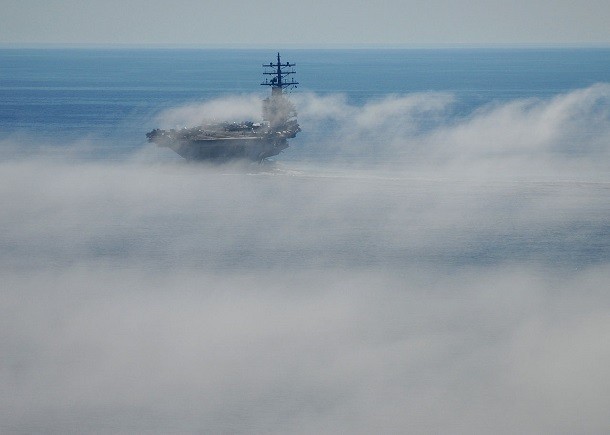 Source: io9, Image: Wikimedia
Source: io9, Image: Wikimedia The rapidly moving wind systems would atomize the surface layer of any body of water, including oceans, creating a spray on the surface and waves that would overturn most if not all vessels.
Sea life would die off
 Source: io9, Image: Zemlinki via Flickr
Source: io9, Image: Zemlinki via Flickr The churning of the water would kill off any creature relying on air to breathe and would kill off any creature unable to survive on the low-oxygen water brought up from the cold depths.
Global temperatures would freefall
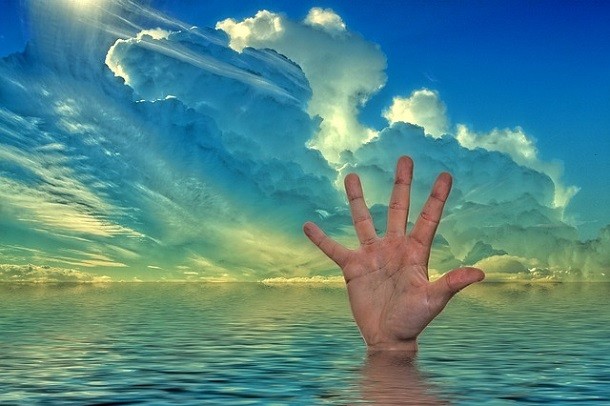 Source: io9, Image: Pixabay
Source: io9, Image: Pixabay With our atmosphere largely covered by dust and debris, a dense fog would simultaneously settle over the colder ocean waters, causing temperatures to further drop.
We would be bombarded with radiation
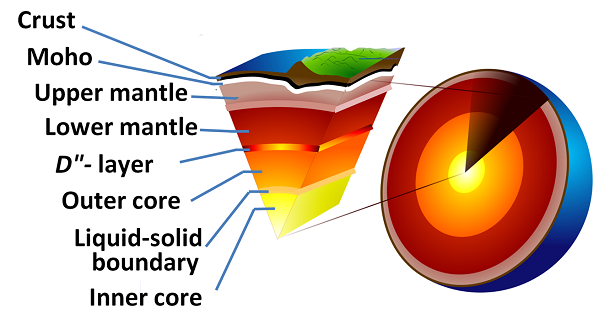 Source: Universe Today, Image: Wikipedia
Source: Universe Today, Image: Wikipedia Assuming the Earth’s core would simultaneously stop rotating, our planet’s magnetic field would cease to exist. Without this magnetic field, we would be vulnerable to all the host of space radiation that bombards our planet on a daily basis. The waves would irradiate us all and kill us instantly.
The northern lights would disappear
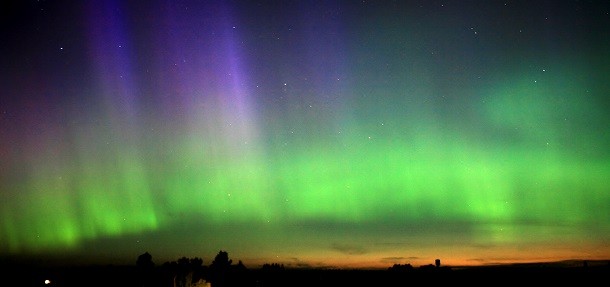 Source: NASA, Image: Wikimedia
Source: NASA, Image: Wikimedia Also known as the Aurora Borealis, the northern lights would cease to exist without a magnetic field.
Seasons would cease to exist
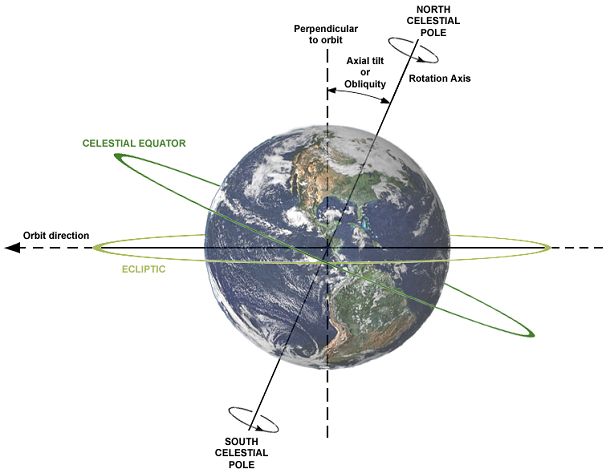 Source: Universe Today, Image: Wikipedia
Source: Universe Today, Image: Wikipedia Earth’s 23.5° tilt would disappear. The sun would still be strongest at the equator but we would have no seasons.
The sun would appear mostly stationary
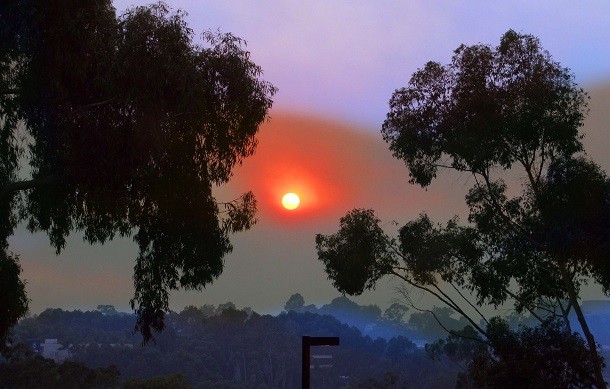 Source: NASA, Image: Wikimedia
Source: NASA, Image: Wikimedia If the Earth stopped rotating, we would see the sun increase or decrease in the sky only when changing our latitude.
Everyone would be dead
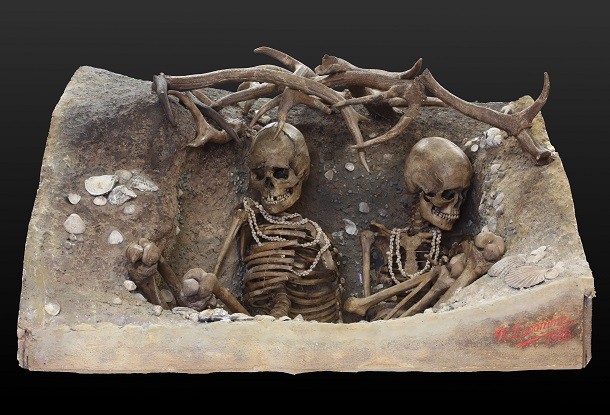 Source: Universe Today, Image: Wikipedia
Source: Universe Today, Image: Wikipedia If it hasn’t become clear by now, nearly everyone and everything would die.
How to survive
 Source: Universe Today, Image: Wikipedia
Source: Universe Today, Image: Wikipedia But, even though the Earth won’t suddenly stop spinning, to have just a slight chance of surviving, be underground. Being underground and inland would shelter us from the hurricanes and tsunamis that would immediately erupt and would prevent the harmful radiation from reaching us. The problem is you may never be able to leave the underground again.



























